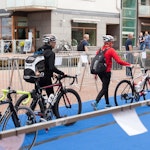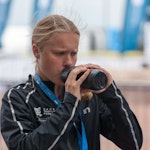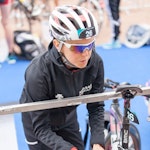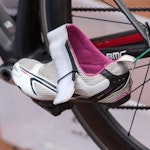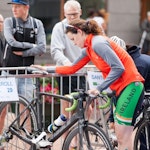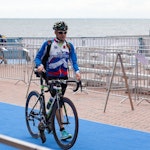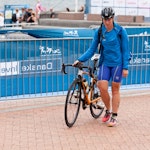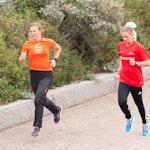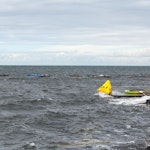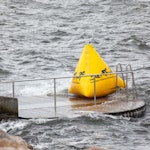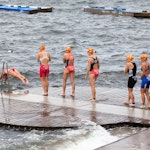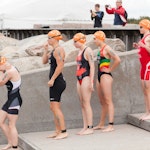The preparations for a triathlon are not easy and when Mother Nature decides to make it more of a challenge than usual you have more work than you could possibly imagine.
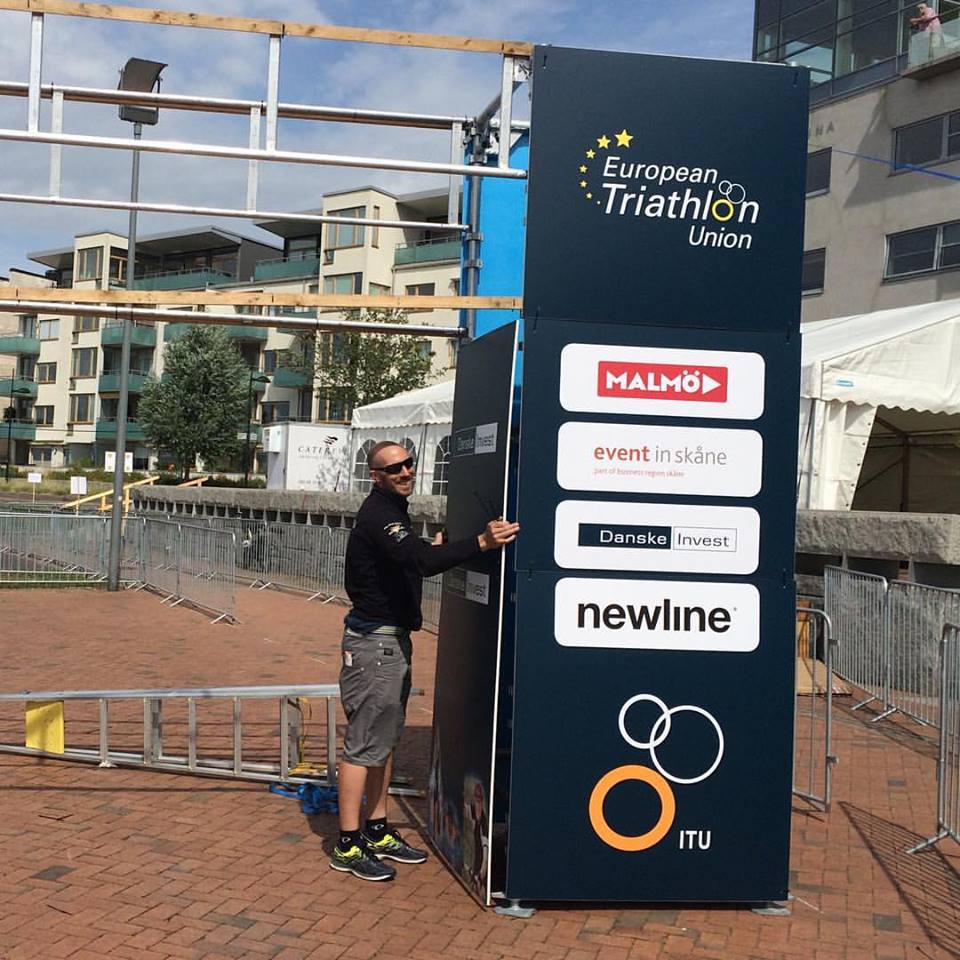
In the days building up to the race the team had been working hard to make sure this race really was the best. The road closure plan was finalised and the construction team had been working hard.
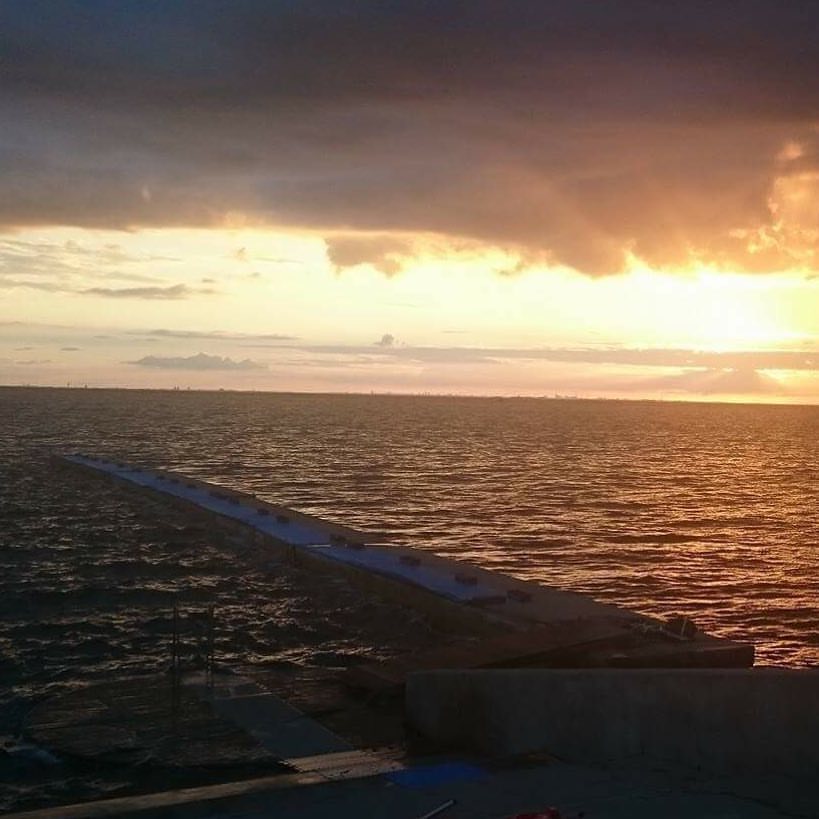
The LOC in Malmö had towed a substantial pontoon to the start area. It was secured, dressed with the blue carpet and was ready and waiting for the athletes.
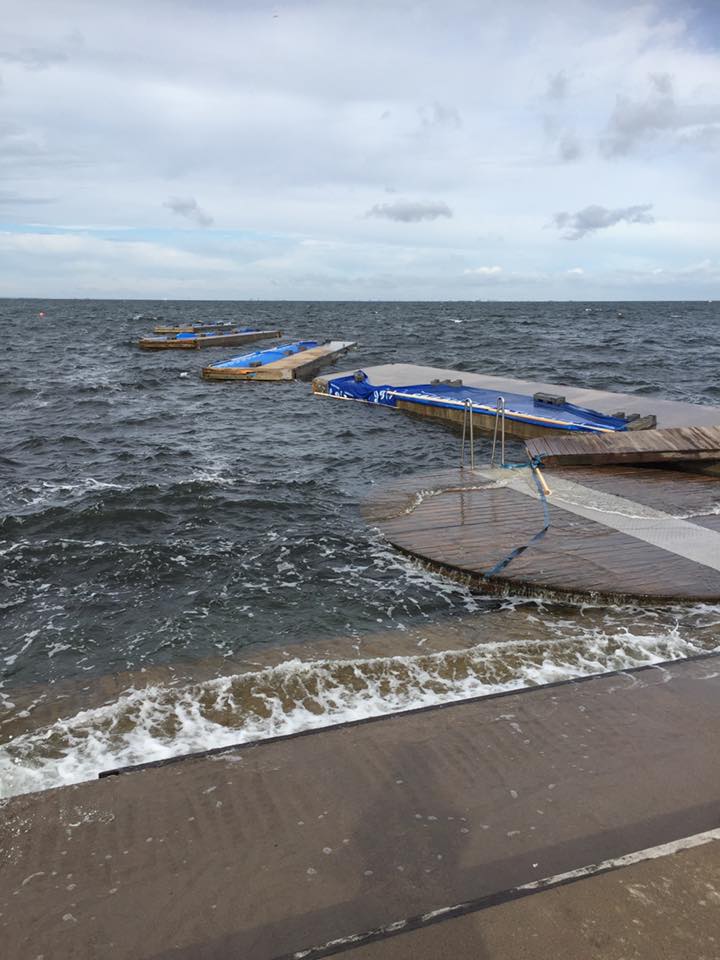
Sadly, over-night, the weather changed and the winds increased. The amount of pressure upon the joints of the sectional pontoon were too great and this was definitely not the sight that the organisers wanted.
Plan B was pulled out and the start was amended from pontoon to a deep water start. All athletes and coaches were advised and it was agreed that this was the most, in fact, only solution if they wanted to keep the race as a swim / bike / run. For the swim warm-up for the women the seas were black and whipped up by stiff breeze.
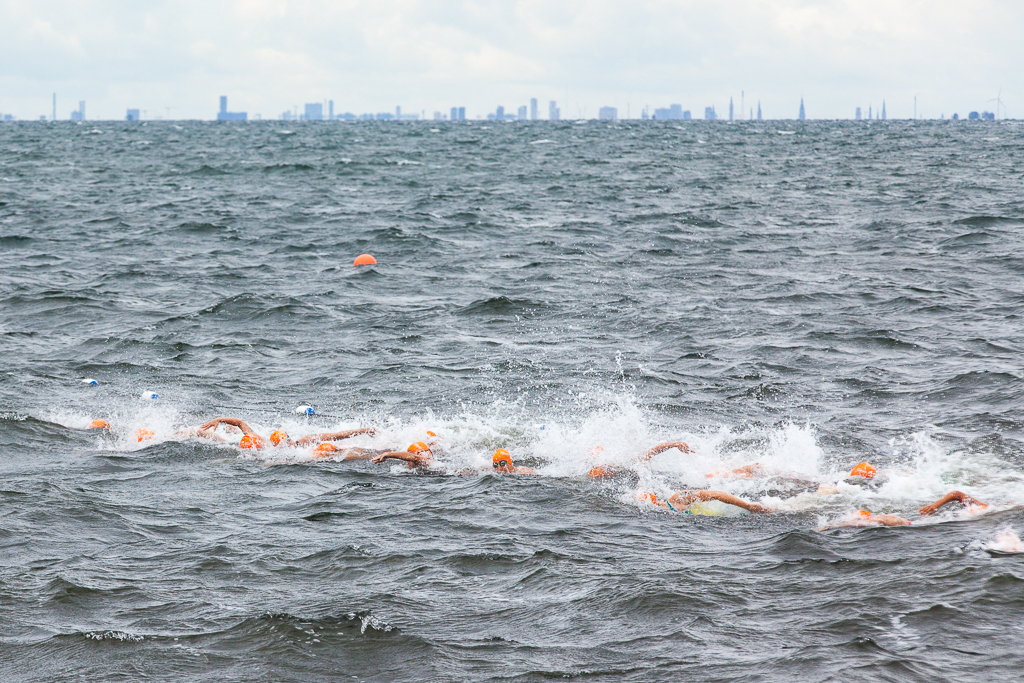
Unexpectedly the temperature had indeed risen and now, over 20C, the athletes would have a non-wetsuit swim. In these conditions it would mean that the truly competent swimmers would get a significant benefit. For all of you who swim open water and prefer to swim without a wetsuit you know exactly how they must have felt.
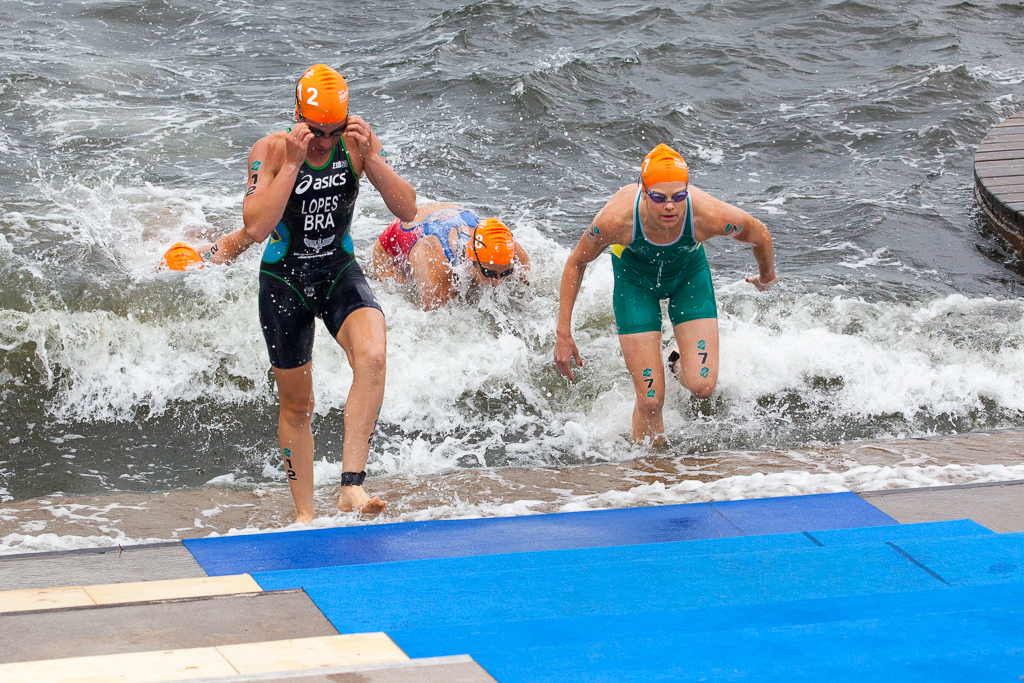
It was Vittoria Lopes BRA who had led the women out of the water in Rotterdam who was thrown onto the concrete swim exit first. Just behind her, only a pace, was the Australian Danielle de Francesco whose timing chip gave her the edge due to the location of the mat. Spain’s Sara Pérez Sala was just behind and then came Valentina Zapatrina RUS. Pérez had a great swim and after the frantic start had worked hard and then seen a swimmer next to her and jumped onto her feet. This really is not an easy thing to do in such conditions and top marks go to her for relying upon her open water skills. A couple of seconds adrift was Canada’s Amélie Kretz who has her ticket booked for Rio.
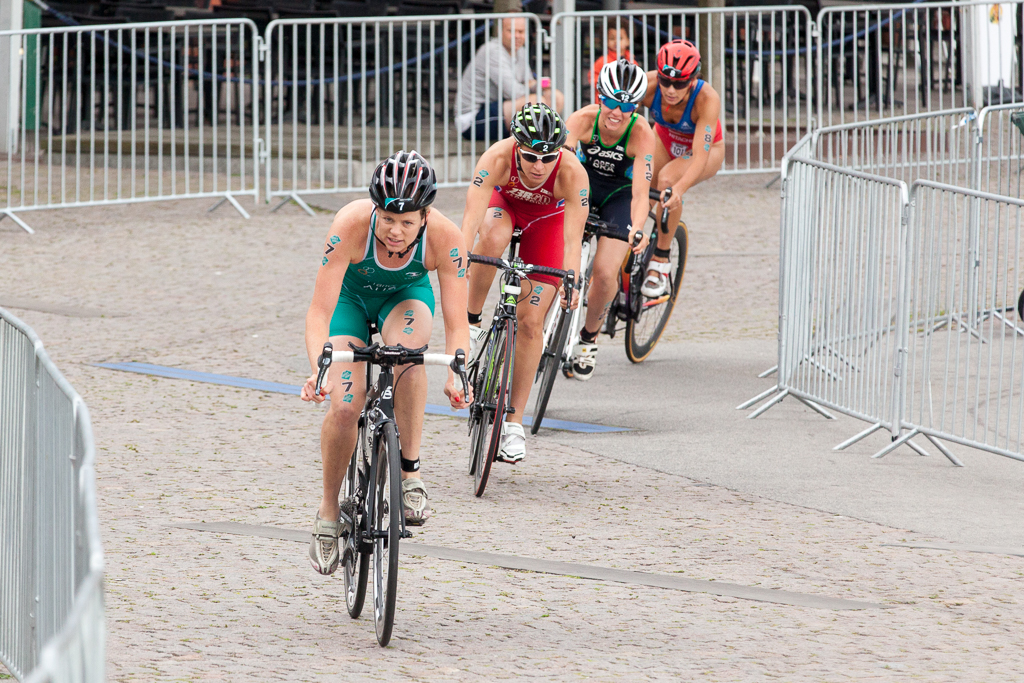
These four had a distinct advantage over the chasing group and made the most of this lead, with a chase pack behind them. The bike course had all been checked out by the athletes on the bike familiarisation. This is provided by the LOC to enable the athletes and their coaches to identify areas where they need to be careful, where they can attack and where they should lead. Somehow the combination of the wind, rain and technical element resulted in a series of crashes and the leading group grew as the race unfolded.
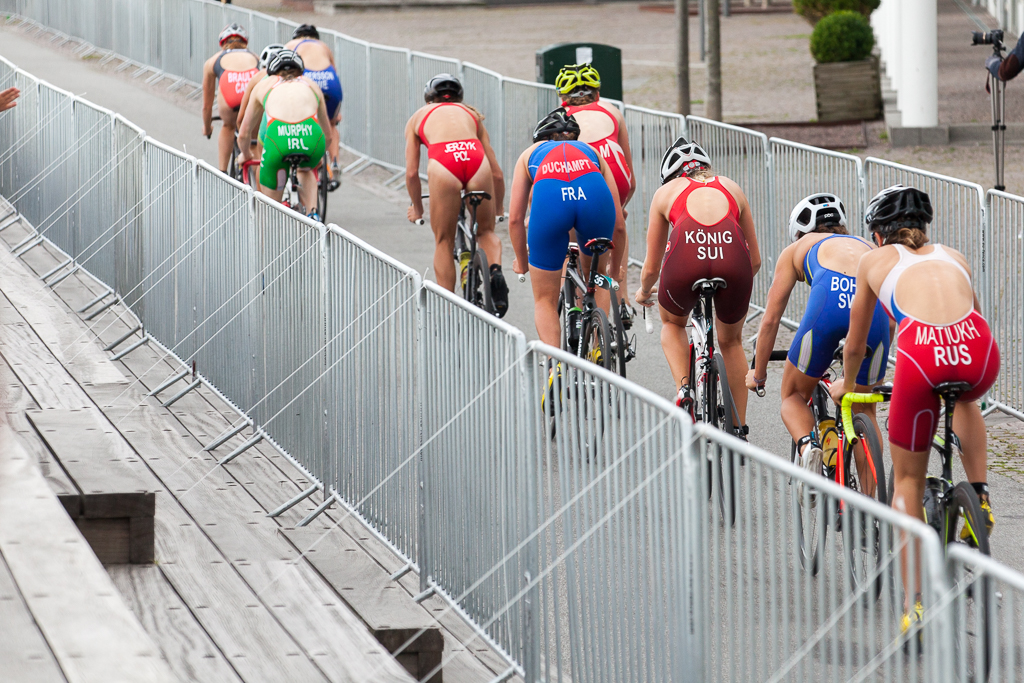
The chase group worked hard to catch the leading 4.
The young Russian, Ekaterina Matiukh winner in Riga, found herself up at the front and leading the new group of ten. As they started their last lap it was Matiukh, having the race of her life, who had secured the lead. This leading group was now down to 9 and within this group was Sweden’s Amanda Bohlin.
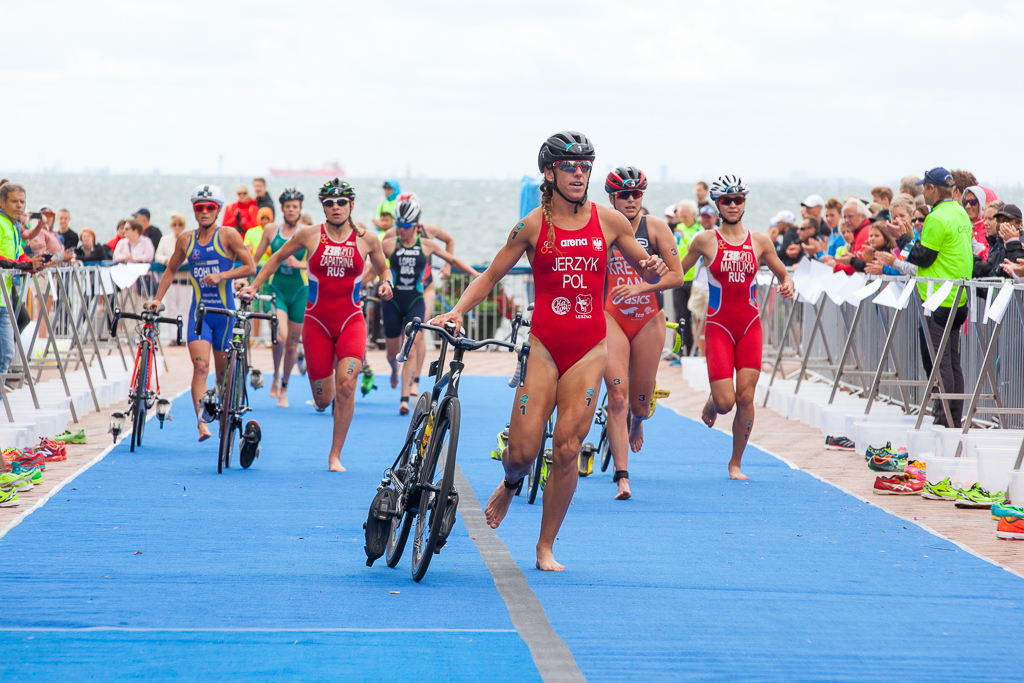
As they came into T2 the crowds went wild. Within this group and safely placed was another Rio athlete, Agnieska Jerzyk and it was she who followed Bohlin out onto the run.
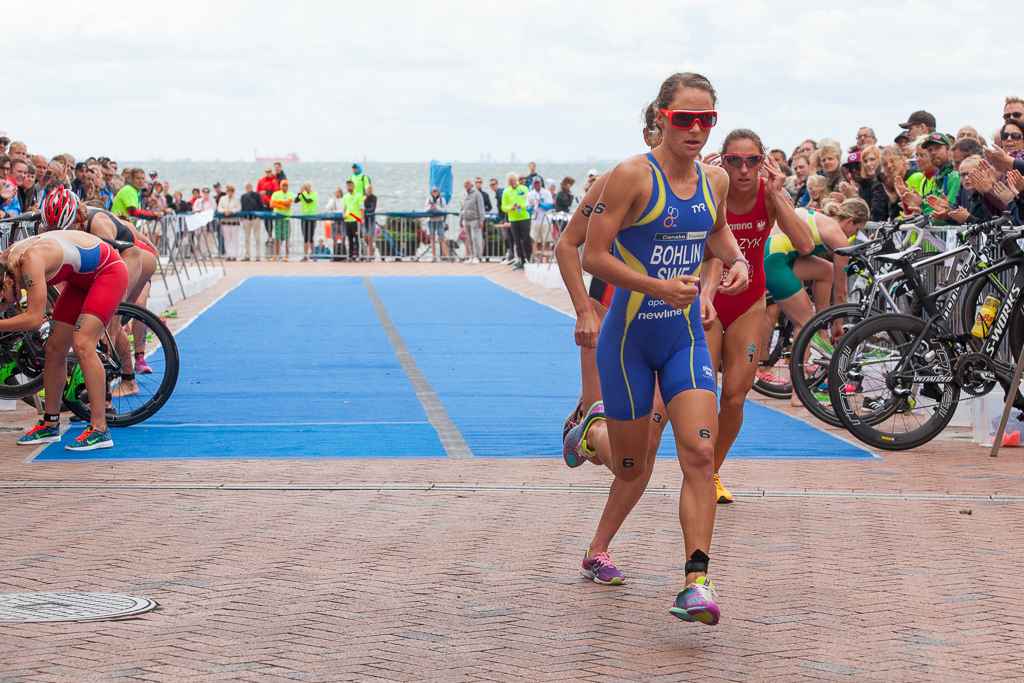
So Sweden leads out onto the run.
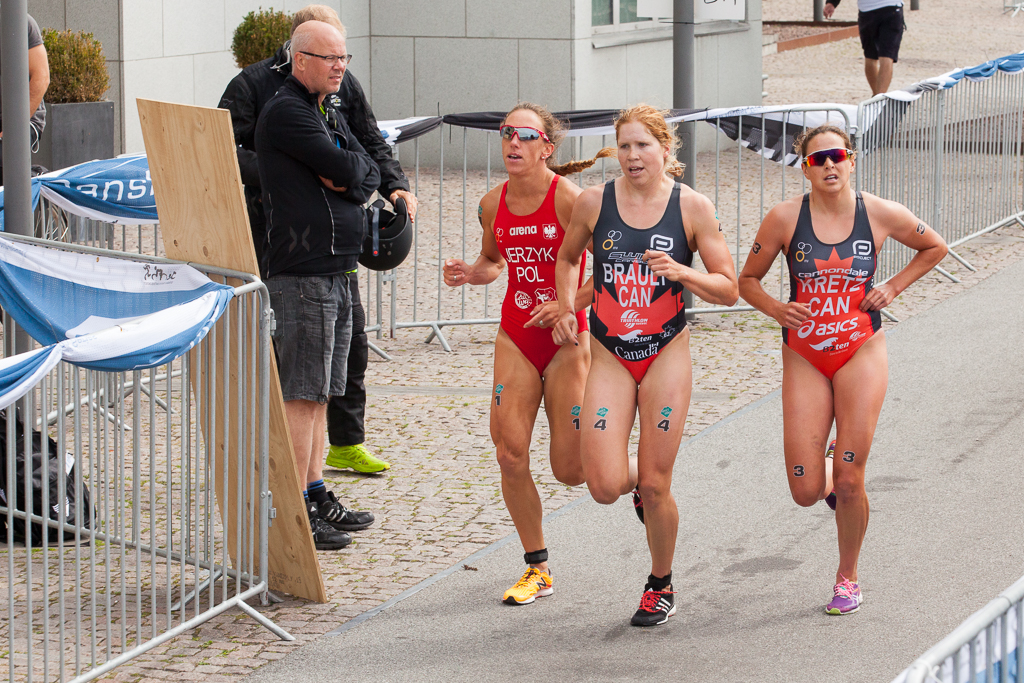
Very soon there was a lead of Kretz, Jerzyk and the other Canadian heading to Rio, Sarah-Anne Brault. These three battled it out for the final 5k and it was the more experienced Polish athlete who chose the right time to kick and escape from the Canadians.
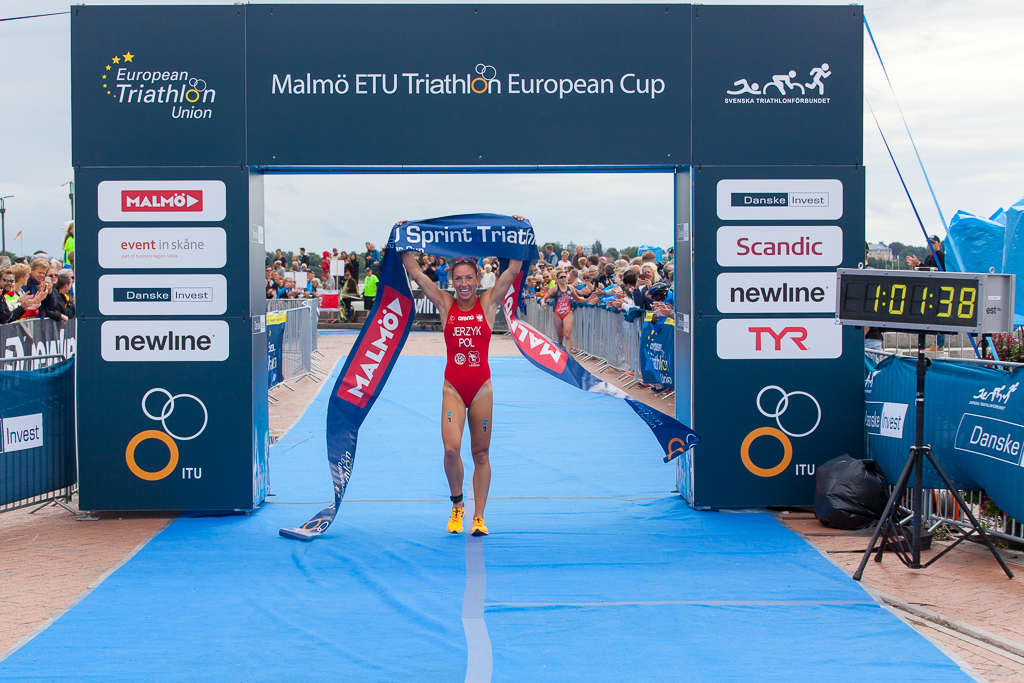
Crossing the line with the fastest 5k Jerzyk took gold with Kretz settling for silver and Brault taking bronze. Behind them, great performances took Zapatrina and Matiukh to 4th and 5th. They will both be heading up the coast to Tønsberg for the next European Cup, hosted by the Norwegian Federation.
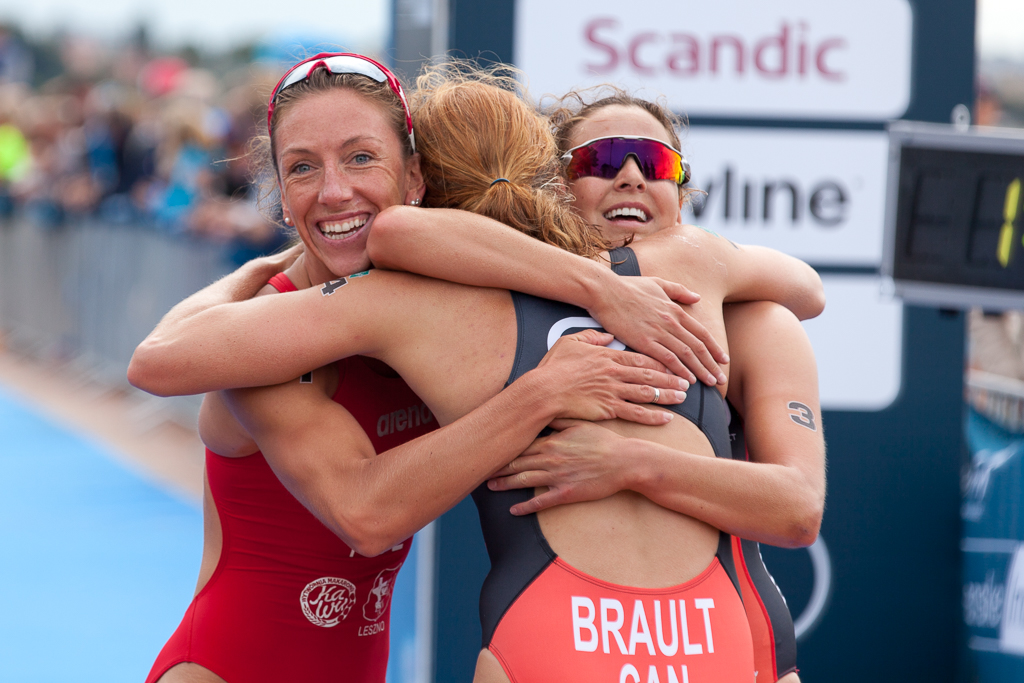
After the race Jerzyk was full of praise for the other Polish athletes who had raced but said this of her own, “Ostatni mocny akcent przed startem w Brazylii pokazał że praca jaką wykonałam w wysokich górach była dobrze zaplanowana i co ważne wykonana. The last strong performance before the start in Brazil showed that the work that I’ve done in the high mountains was well planned and executed.”
For Kretz, “It was a pretty challenging race. The conditions were rough with a really choppy swim, a windy and technical bike as well as a windy run. It was a great test to see where I am at leading into Rio and great to go through those race processes one more time before the big one in Rio!”
Brault will remember this race for the swim, “I had a lot of fun out there today. The conditions made for a rough day. That was the choppiest water I have ever swam in. The bike was technical with cobblestones, lots of corners and a bit of rain. I got outsprinted by both girls in the end, but I was happy with the execution today. It was a great hit out there before Rio.”
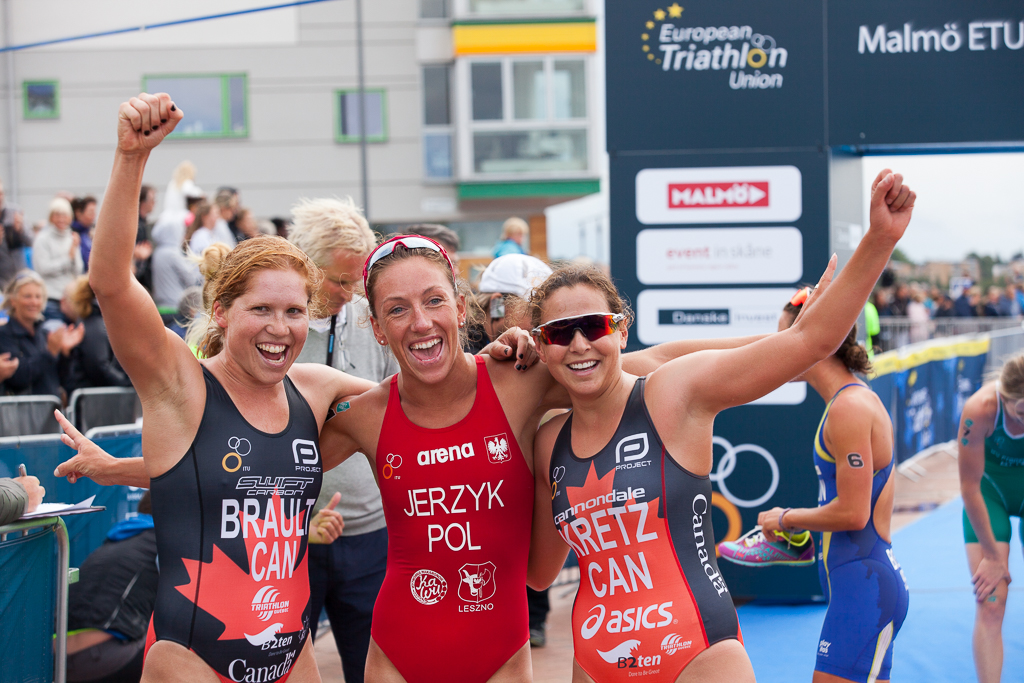
The men were blessed with better weather conditions as the sea had calmed slightly.
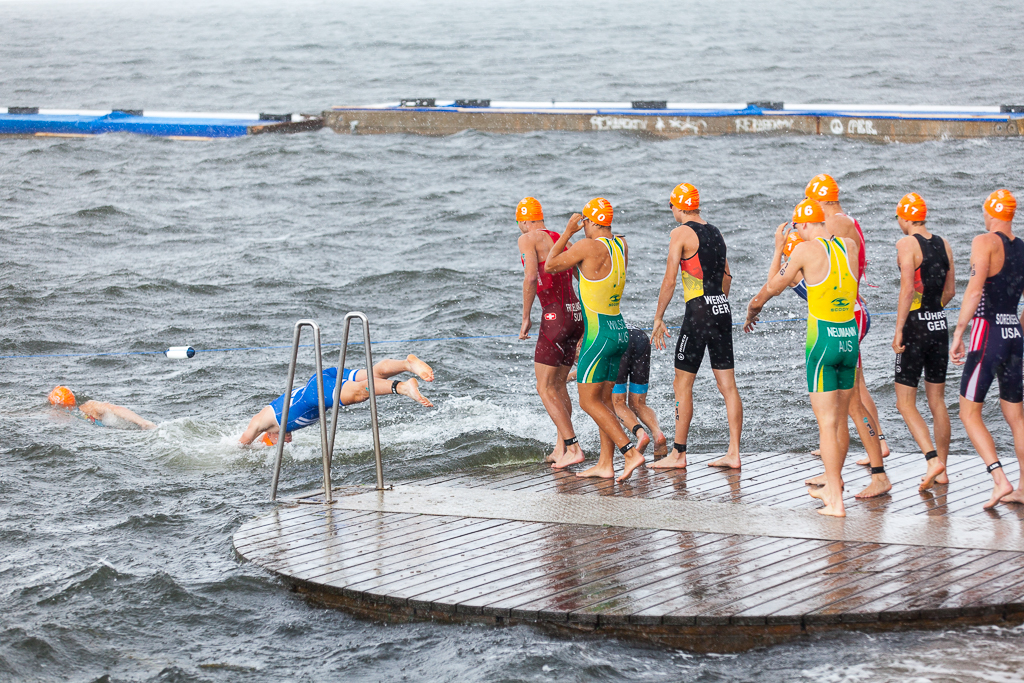
The swim warm-up prepared them for the race and allowed the men to identify their sighting points as they headed to the exit.
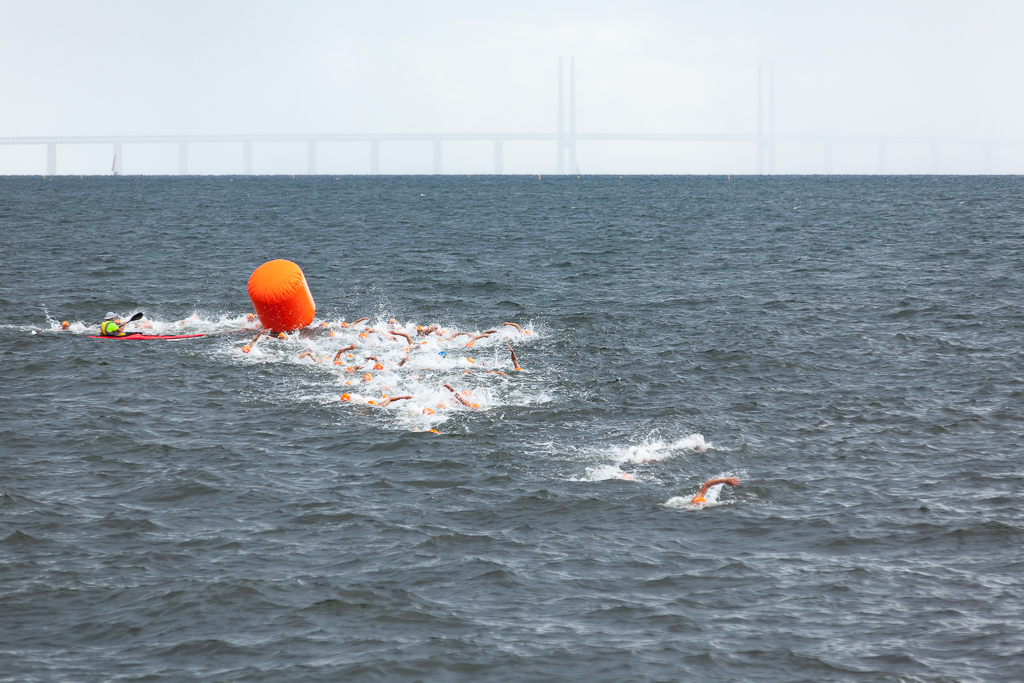
It was no surprise to see the Polish swim power of Michał Oliwa leading the men out of the water. His power in the swim is immense and he was almost 10 seconds ahead of any of the chasing athletes. Eirik Ravnan NOR was behind him and then came Justus Nieschlag GER and Australian Matthew Baker.
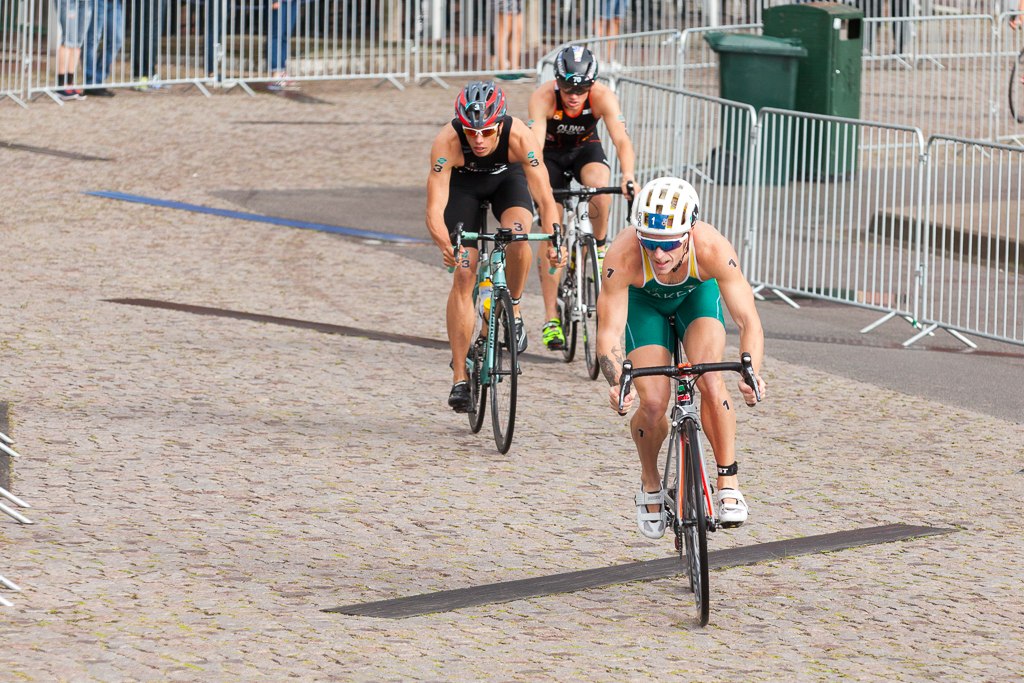
Oliwa is strong in the water and can ride too. He worked with Nieschalg and Baker and made repeated attempts to break away.
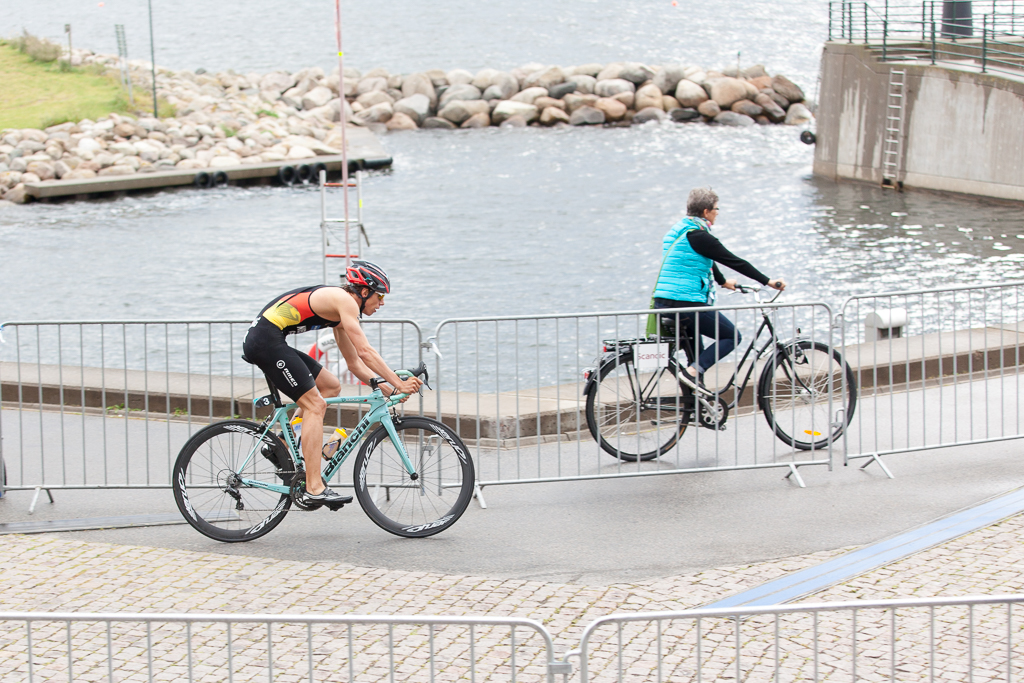
Towards the end of the 20k the peloton had caught them and they sensibly stayed at the front end of the pack to avoid crashes on the twisting and turning and occasionally cobbled sections of roadway.
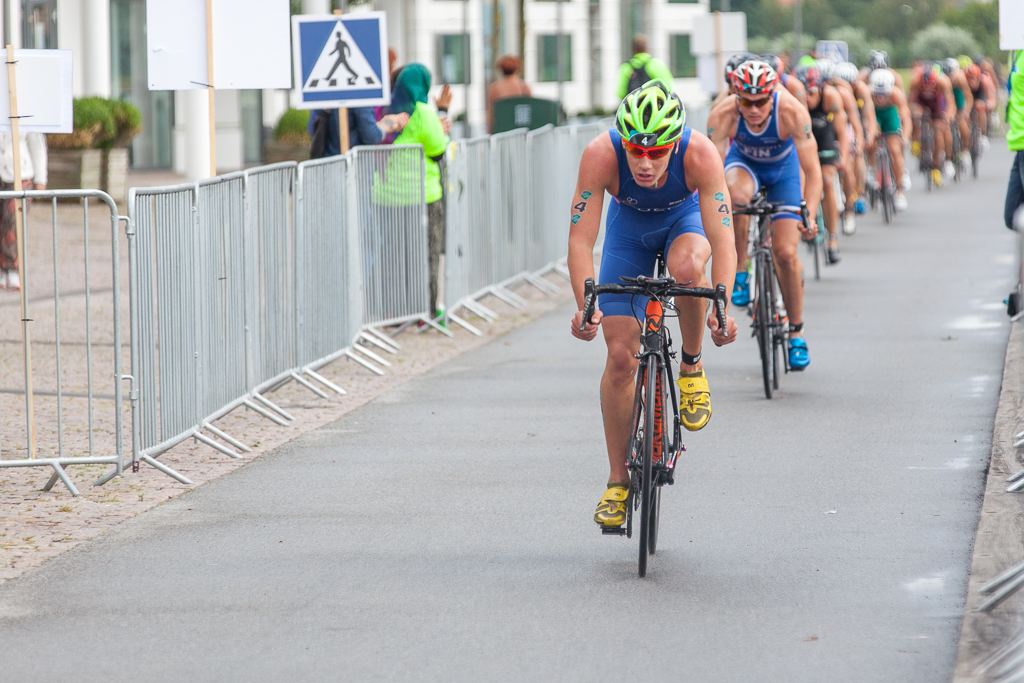
The 26-strong group headed to T2, led by Gustav Iden NOR.
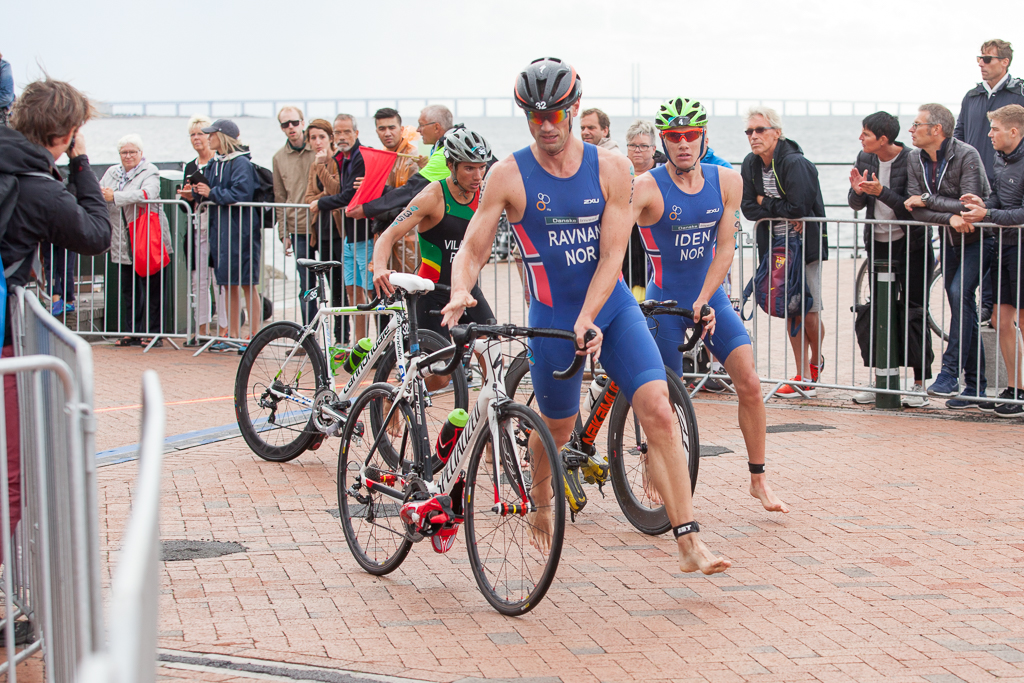
He maintained his position right down to the dismount and then with Christophe De Keyser BEL and Nieschlag they raced out onto the 5k.
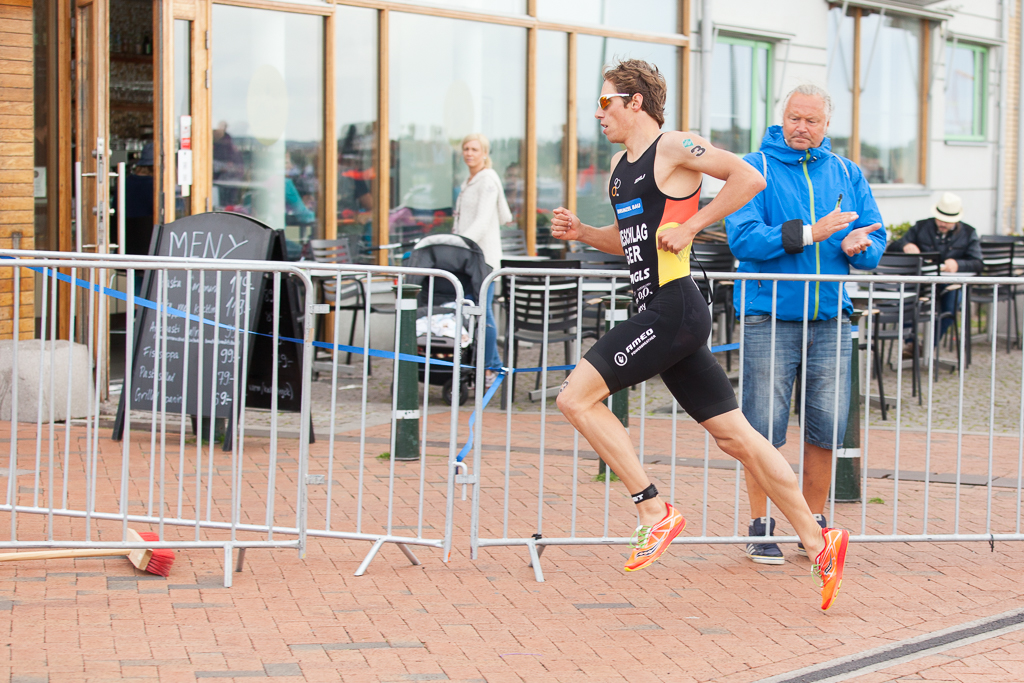
Nieschlag worked hard and was able to create the distance that would take him to gold.

Behind him De Keyser was battling with Baker and proved to have more left in his legs than the Australian and Iden. The Belgian was able to take advantage to bring the silver to Belgium.
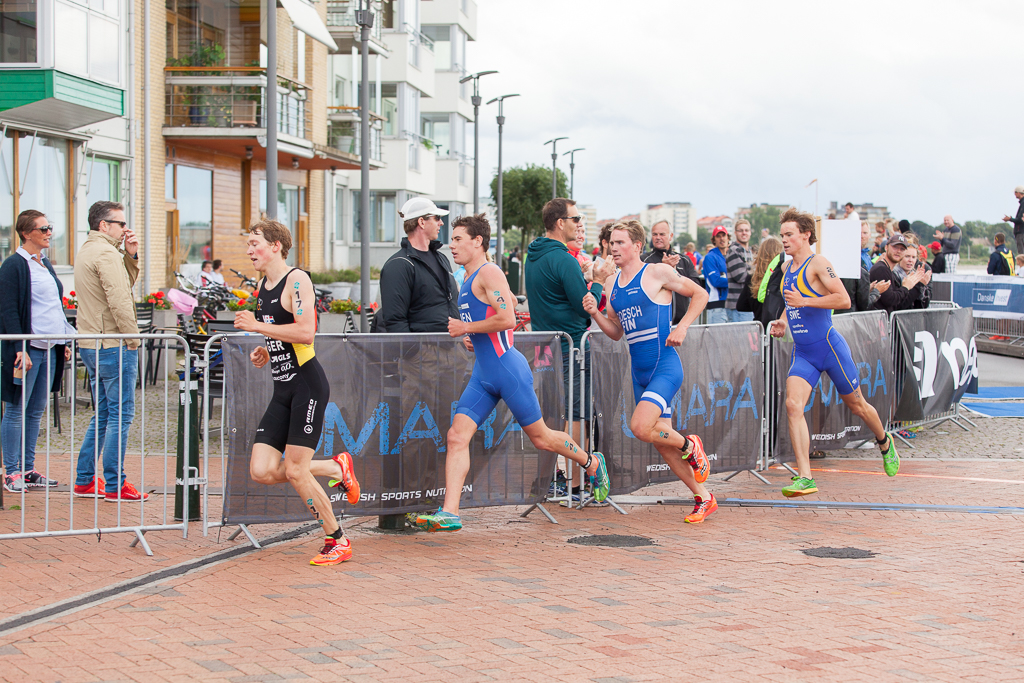
Iden had a battle on his hands as behind him and running quicker was Sweden’s Gabriel Sandör. With the crowds urging him along he was so, so close to the podium but Iden, with only 2 seconds advantage, was able to hold onto bronze.
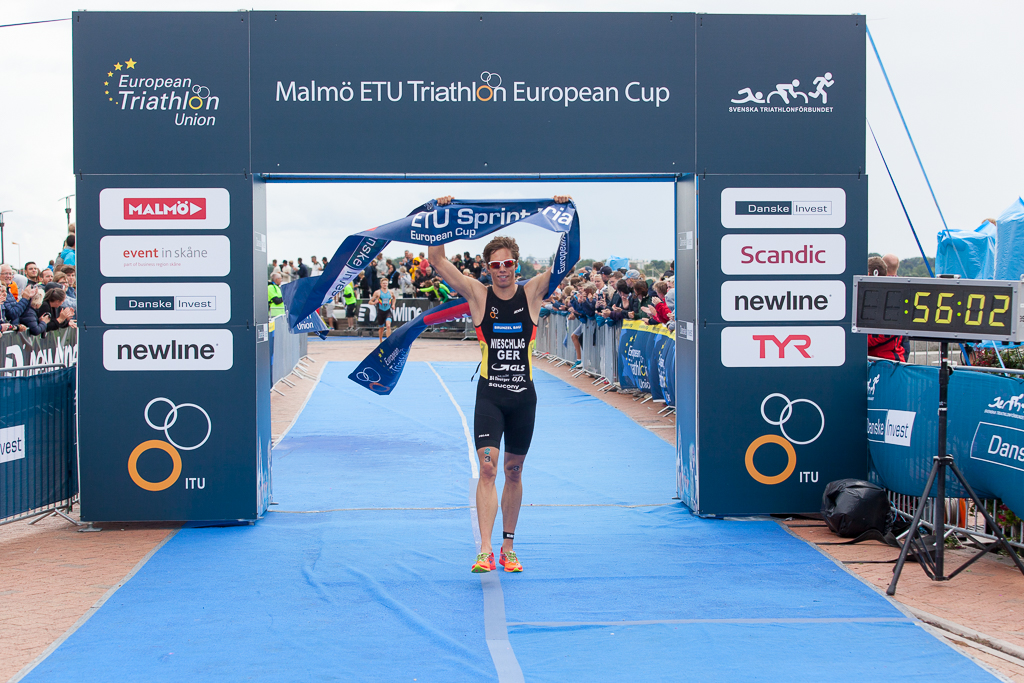
For Nieschlag, this victory is a great bonus and with his eyes on Tønsberg next weekend, he will be the man to beat in Norway but will have to race against De Keyser, Iden and Sandör. For De Keyser, “Yeeessss! This feeling is so good! Ended 2th in Malmö (Sweden) on the European cup! Trop content de terminer 2ième à la coupe d’Europe de Malmö!”
Many thanks to Malmö Triathlon and their photographer Jens Rydén and to Petko Beier for the wonderful photos.
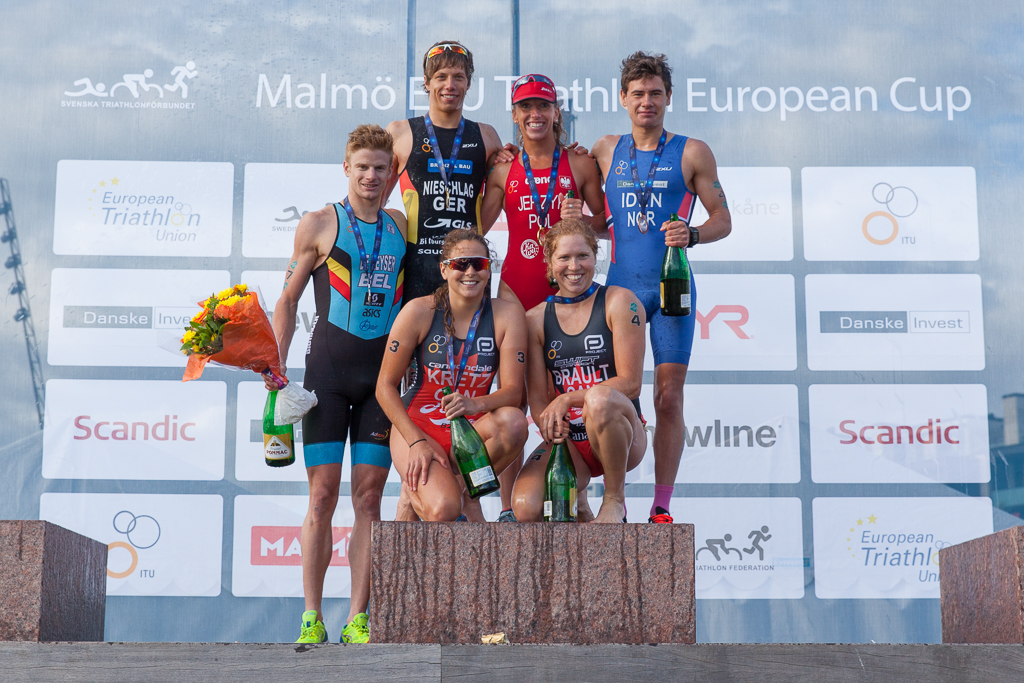
For many, the view that they saw on Saturday morning must have been awful – the broken pontoon could so easily have ruined the day but instead the LOC, supported by the athletes and coaches, were able to deliver a great event. Looking forwards to seeing you next year Malmö !
Article gallery
Related Event: 2016 Malmö ETU Sprint Triathlon European Cup
| Results: Elite Men | |||
|---|---|---|---|
| 1. | Justus Nieschlag | GER | 00:56:02 |
| 2. | Christophe De Keyser | BEL | 00:56:10 |
| 3. | Gustav Iden | NOR | 00:56:17 |
| 4. | Gabriel Sandör | SWE | 00:56:19 |
| 5. | Lasse Lührs | GER | 00:56:21 |
| 6. | Henrik Goesch | FIN | 00:56:28 |
| 7. | Matthew Baker | AUS | 00:56:34 |
| 8. | Casper Stornes | NOR | 00:56:40 |
| 9. | Daniel Bækkegård | DEN | 00:56:44 |
| 10. | Mathias Lyngsø Petersen | DEN | 00:56:48 |
| Results: Elite Women | |||
|---|---|---|---|
| 1. | Agnieszka Jerzyk | POL | 00:59:16 |
| 2. | Amelie Kretz | CAN | 00:59:23 |
| 3. | Sarah-Anne Brault | CAN | 00:59:32 |
| 4. | Valentina Zapatrina | AIN | 00:59:55 |
| 5. | Ekaterina Matiukh | AIN | 01:00:03 |
| 6. | Amanda Bohlin | SWE | 01:00:25 |
| 7. | Sara Perez Sala | ESP | 01:00:38 |
| 8. | Danielle De Francesco | AUS | 01:00:50 |
| 9. | Vittoria Lopes | BRA | 01:00:58 |
| 10. | Sofie Hooghe | BEL | 01:01:09 |

